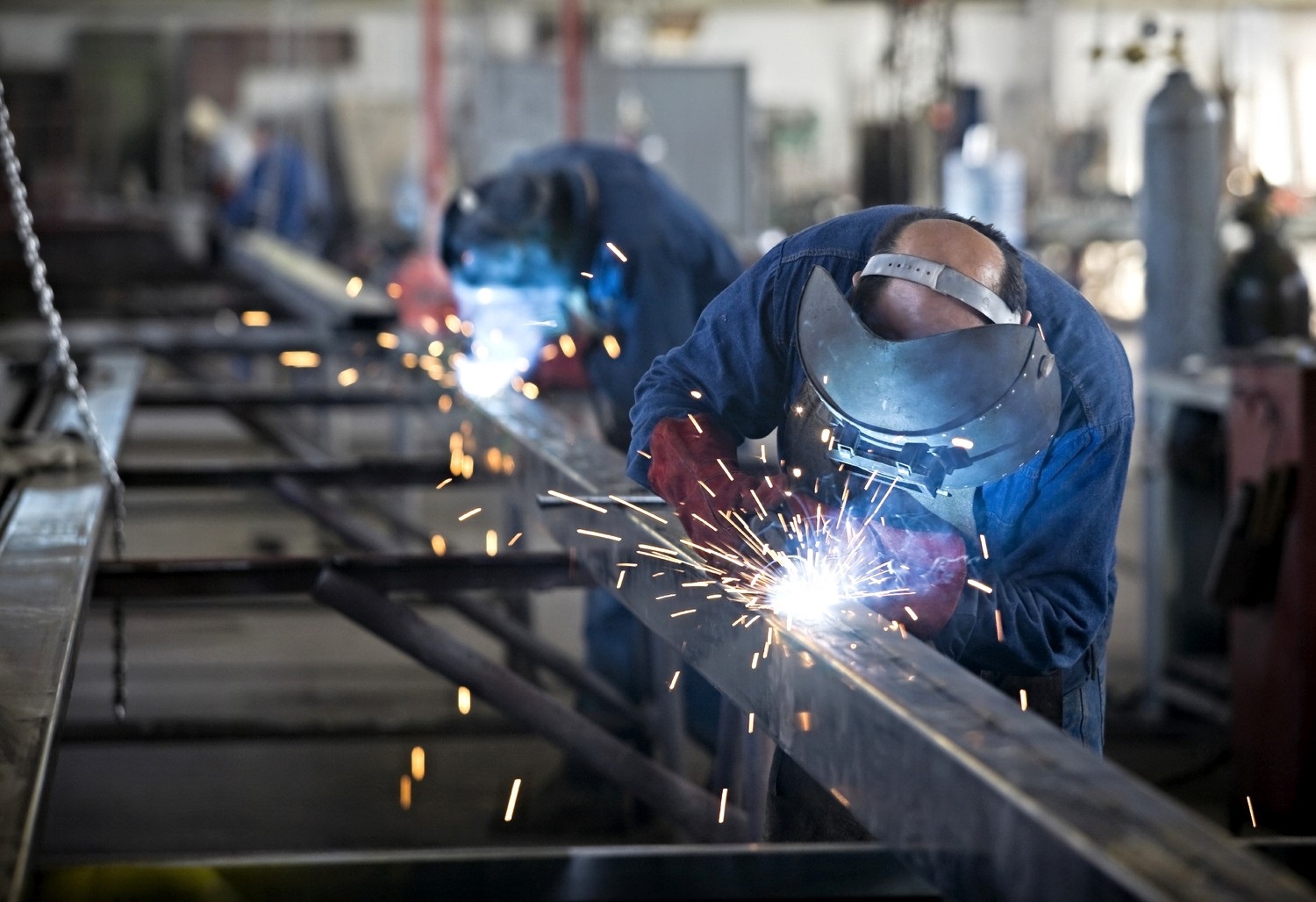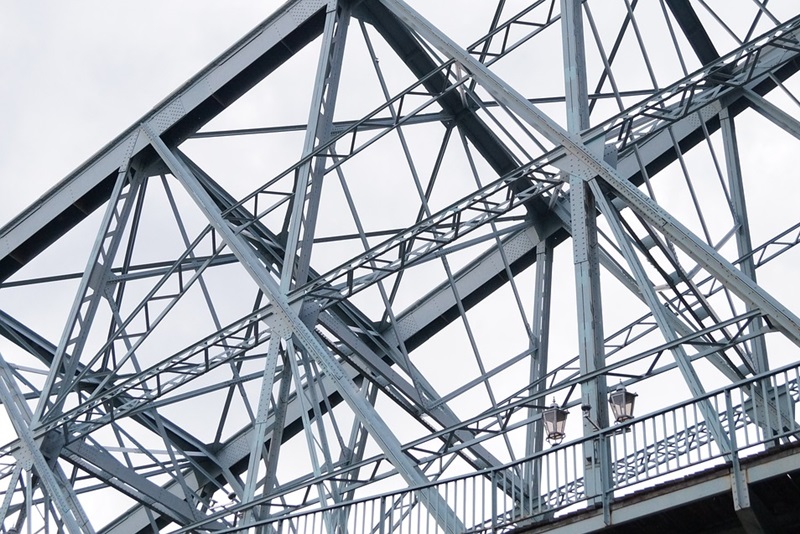The Ultimate Handbook on Personalized Steel Fabrication Solutions for Structural Projects
In the world of structural tasks, the importance of personalized steel fabrication options can not be overstated. From the fundamental understanding of steel manufacture basics to the complex process of choosing one of the most suitable products, every action in this journey plays an essential role in the supreme success of a task. As we navigate with the intricacies of layout factors to consider, construction procedures, and quality control procedures, a comprehensive handbook acts as a leading light for professionals seeking quality in steel manufacture solutions. Stay tuned to discover the understandings that can change the way structural jobs are come close to and implemented.
Understanding Custom Steel Fabrication Basics
Exploring the basics of customized steel construction offers insight right into the intricate procedure of changing raw steel right into tailored architectural elements. Custom-made steel construction is a specific manufacturing technique that entails cutting, shaping, and constructing steel products to produce special structures according to specific project needs. Recognizing the fundamentals of customized steel fabrication is crucial for making certain the effective execution of structural tasks.
The process commonly begins with the evaluation of job specifications and layout demands. This initial stage includes comprehensive preparation and partnership in between developers, fabricators, and designers to identify one of the most appropriate approach for making the steel components. Accuracy is key throughout the construction process, as also small variances can influence the structural honesty of the final item.
Various methods, such as reducing, welding, and shaping, are utilized to change raw steel into the preferred architectural elements. Skilled producers make use of advanced equipment and devices to guarantee precision and uniformity throughout the fabrication process. Quality assurance measures are carried out to validate the integrity of the produced parts prior to they are put together on-site, making sure conformity with industry criteria and job requirements.
Selecting the Right Steel Materials

Firstly, the sort of architectural task and its specific needs play a critical duty in determining the most appropriate steel materials. Elements such as the load-bearing capacity, ecological problems, and desired lifespan of the structure will certainly determine the quality and sort of steel that should be used.
Furthermore, the physical residential properties of the steel, consisting of weldability, toughness, and ductility, must line up with the project's needs to guarantee optimum performance and toughness (metal fabrication melbourne). Additionally, factors to consider such as deterioration resistance, cost-effectiveness, and schedule of the steel materials should additionally be taken into account throughout the option procedure
Style Considerations for Architectural Tasks
Architectural tasks necessitate meticulous interest to create considerations to make certain both functionality and safety are focused on throughout the building and construction procedure. A number of vital elements need to be taken into account to ensure the success of the undertaking when it comes to designing structural jobs. The architectural integrity of the building must be a top concern. This involves assessing tons, stress and anxieties, and environmental elements to establish one of the most suitable layout that can endure numerous problems over time. Additionally, considerations for the performance of the structure play a vital function in the style procedure. Understanding the purpose of the building and how it will be utilized helps in creating a design that makes best use of performance and usability. Additionally, including components that boost the aesthetics of the framework can better boost the general style. Balancing looks, functionality, and safety is important in developing successful structural projects that fulfill both visual and practical needs. By thoroughly considering these elements during the style phase, designers and engineers can make sure the structural job's success from conception to conclusion.
Improving Fabrication Procedures for Effectiveness

Moreover, carrying out lean production principles can substantially boost effectiveness in steel manufacture. By minimizing best site waste, enhancing operations, and enhancing communication in between various teams included in the manufacture process, projects can be finished extra swiftly and with better criteria.
Furthermore, establishing a well-organized manufacturing timetable and operations can help in prioritizing jobs, appointing resources effectively, and meeting job due dates without his explanation delay. By having a clear strategy in position and frequently keeping an eye on progression, any kind of potential bottlenecks or delays can be identified and dealt with quickly, making sure smooth and reliable manufacture procedures for architectural tasks.
Top Quality Control and Task Monitoring in Steel Construction
To make sure the effective execution of steel construction jobs, precise quality assurance steps and effective project monitoring techniques are crucial parts in keeping precision and meeting client assumptions. Quality assurance in steel construction includes rigorous inspections at different phases of the manufacture procedure to confirm compliance with task specs and market standards. This consists of material testing, dimensional checks, and weld inspections to make certain architectural integrity and safety and security.
Task administration plays a vital function in coordinating the various aspects of steel construction jobs, such as organizing, resource allowance, and interaction amongst employee. A distinct job plan with clear purposes, milestones, and timelines helps to keep an eye on progression and attend to any kind of prospective concerns proactively. Reliable communication between all stakeholders, consisting of clients, professionals, makers, and designers, is essential check it out for guaranteeing that the project progresses efficiently and meets the desired high quality criteria.
Final Thought
In final thought, personalized steel fabrication plays an essential function in architectural projects by offering tailored services making use of the appropriate materials and design factors to consider. Performance in construction procedures, high quality control, and efficient task monitoring are crucial for successful results. By comprehending the basics of custom-made steel manufacture and applying streamlined processes, job groups can deliver long lasting and high-grade structures that meet the details demands of their customers.
Custom steel manufacture is a specialized manufacturing technique that includes cutting, shaping, and setting up steel materials to develop unique frameworks according to particular task needs.To guarantee the effective implementation of steel fabrication jobs, precise quality control procedures and efficient project monitoring techniques are vital components in keeping accuracy and meeting client expectations. Quality control in steel construction involves rigorous evaluations at various phases of the fabrication process to verify compliance with job specs and market standards (metal fabrication melbourne).Task administration plays an essential role in coordinating the numerous aspects of steel manufacture projects, such as scheduling, source allowance, and communication amongst group participants.In conclusion, custom-made steel construction plays a vital function in structural jobs by providing customized services making use of the right products and layout considerations